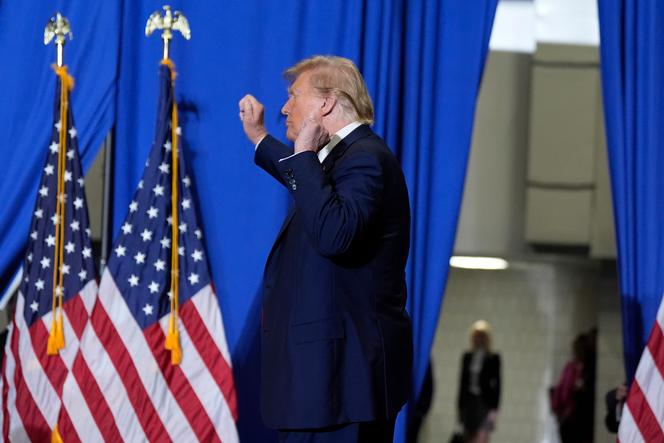

LETTER FROM WASHINGTON

He mentioned Ronald Reagan and ignored Donald Trump. That speaks to both his age and his preference. Mitch McConnell appeared before a largely empty Senate on February 28 to make an announcement that was unexpected but logical. At the age of 82, the Republican leader has decided that he will stop leading the caucus after the November presidential election, while continuing his term in office. "For as long as I am drawing breath on this earth," he said in his drawling Kentucky accent, "I will defend American exceptionalism." It's exactly for this type of remark, imbued with traditional conservatism, that the new Trump-supporting right abhors McConnell.
"Our thoughts are with our Democrat colleagues in the Senate on the retirement of their Co-Majority Leader," the Freedom Caucus, a group of several dozen extremist Republican members of the House of Representatives, wrote sarcastically. Their statement mocked the state McConnell purportedly represents – Ukraine. The veteran Republican, known as a cold, calculating strategist, nevertheless has one absolute conviction: the need to support Kyiv militarily in the face of the Russian invasion. This is the exact opposite of the new Republican wave, including Ohio Senator J. D. Vance, which rejects even indirect military commitments abroad.
The announcement of his stepping down, effective in November, has opened up the succession race between "the three Johns," as they are known in the American press: Thune of South Dakota, Cornyn of Texas and Barrasso of Wyoming. Unlike McConnell, they have already thrown their support behind Trump, the Republican primary front-runner. Will that be enough? The Trump-backing members of the Senate, a minority within the minority, are determined to emulate their counterparts in the House: to become central and indispensable by extorting the contenders for the post.
Although the primary reason for McConnell to step down is his very precarious health, not to mention his weariness, it paves the way for the MAGA (Make America Great Again) movement to take control of the Republican Senate caucus. McConnell was no longer holding the troops together as he did in the old days, when the Senate was the enclave of responsible politicians ready for bipartisan compromise.
More broadly, with the November presidential election on the horizon, Trump is methodically organizing the submission and purging of the party for his own political and financial benefit. It's starting at the top. Re-elected in January 2023 for two more years, Ronna McDaniel, chair of the Republican National Committee (RNC), nonetheless gave in to the MAGA wave and announced that she would leave on March 8. "The RNC has historically undergone change once we have a nominee and it has always been my intention to honor that tradition," she explained in a statement. However, the Republican convention won't take place until July, the formal moment when the likely nominee, Trump, will be crowned. It was therefore a hasty and forced departure.
You have 44.94% of this article left to read. The rest is for subscribers only.
